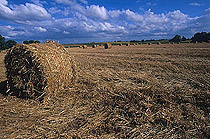
bio
Offres de vente
Pour identifier la société, cliquer sur le numéro de l'offre

We have been in the Organic & Compost manufacturing business since 1992. However hitherto our compost production was limited for use in our two estates and farms only. Now we are moving ahead with the demand for Compost & Liquid fertilizers growing and the state pushing us to use our knowledge as a national priority & requirement.
We possess our own farms including a large Dairy Farm as well to deliver a Total Green Economy – commencing from the use of Green & Brown Raw materials and ending with the Production of Liquid Milk, which will also be available for up-stream Development of Milk-Based Products soon.
Here we have gone into the deep south of the country, to Sooriyawewa, to carry out training of some of our farmers on compost making.

Maya Gold Trading was founded in Amsterdam, the Netherlands in 2013, From bulk organic ingredients, private label solutions and our own Maya Gold Organic brand to retail stores, we have experience supplying organic food products to partners in more than 40 countries.
Maya Gold Trading is an international importer and trader of organic food products. We offer a wide range of the finest organic products and ingredients sourced from the most sustainable sources. Organic Agave and Coconut products are our star products, but not only!
The scope of our activity includes the trade of the grain of oleiferous, leguminous, papilionaceous and exotic plants.
certificate: Biocert
Sunflower
Safflower
Sesame
Flaxseed and Linseed
Peas
Soyabean
Chickpeas
Lentils
Certificate: Biocert
Yerevanian variety: Fruits of this variety of apricots are big, weighting 60 – 70 g (can reach up to 110 g), have oval form. Fruits are fleshy, fragrant, juicy, sour-sweetish, contain 11, 3% sugar on average, acidity is about 0, 63%. Stones are easily separable from flesh and are sweet. Ripening period is late June to early July.

Shapes:
Fusilli, Penne, Spaghetti, Tagliatelle,
Capellini, Farfalle
Packaging: 5kg, 2,5kg, 500g, 375g, 250g

Laminated Spaghetti / Spaghetti alla chitarra
Long U-shape
Packaging: 500g, 250g

Shapes
Fusilli, Penne, Spaghetti, Tagliatelle,
Capellini, Farfalle



Varieties: yerevanian and Sateni
Yerevanian: Fruits of this variety of apricots are big, weighting 60 – 70 g (can reach up to 110 g), have oval form. Fruits are fleshy, fragrant, juicy, sour-sweetish, contain 11, 3% sugar on average, acidity is about 0, 63%. Stones are easily separable from flesh and are sweet. Ripening period is late June to early July. Fresh - 400 Tones
Sateni: Fruits weight 40 – 50 g, they are round, a little bit dented from sides, asymmetric, amber yellowish or little bit darker, with pale pink tinge on the side most exposed to the light. Flesh is firm, not very juicy and fragrant but very sweet and contain about 14-15% sugar on average and only 0,3% acids. The stone is easily separable from flesh. Kernel is sweet. Ripening is mid of July. Fresh 100 Tones, Dried - 20 Tones

Amount - 20 Tons

Yerevanian variety organic apricots: Fruits of this variety of apricots are big, weighting 60 – 70 g (can reach up to 110 g), have oval form. Fruits are fleshy, fragrant, juicy, sour-sweetish, contain 11, 3% sugar on average, acidity is about 0, 63%. Stones are easily separable from flesh and are sweet. Ripening period is late June to early July. Amount - 400 Tones
Sateni variety organic apricots: Fruits weight 40 – 50 g, they are round, a little bit dented from sides, asymmetric, amber yellowish or little bit darker, with pale pink tinge on the side most exposed to the light. Flesh is firm, not very juicy and fragrant but very sweet and contain about 14-15% sugar on average and only 0,3% acids. The stone is easily separable from flesh. Kernel is sweet. Ripening is mid of July. Amount fresh - 100 Tones, Dried - 20 Tones

Varieties: yerevanian and Sateni
Yerevanian: Fruits of this variety of apricots are big, weighting 60 – 70 g (can reach up to 110 g), have oval form. Fruits are fleshy, fragrant, juicy, sour-sweetish, contain 11, 3% sugar on average, acidity is about 0, 63%. Stones are easily separable from flesh and are sweet. Ripening period is late June to early July. Fresh - 400 Tones
Sateni: Fruits weight 40 – 50 g, they are round, a little bit dented from sides, asymmetric, amber yellowish or little bit darker, with pale pink tinge on the side most exposed to the light. Flesh is firm, not very juicy and fragrant but very sweet and contain about 14-15% sugar on average and only 0,3% acids. The stone is easily separable from flesh. Kernel is sweet. Ripening is mid of July. Fresh 100 Tones, Dried - 20 Tones












